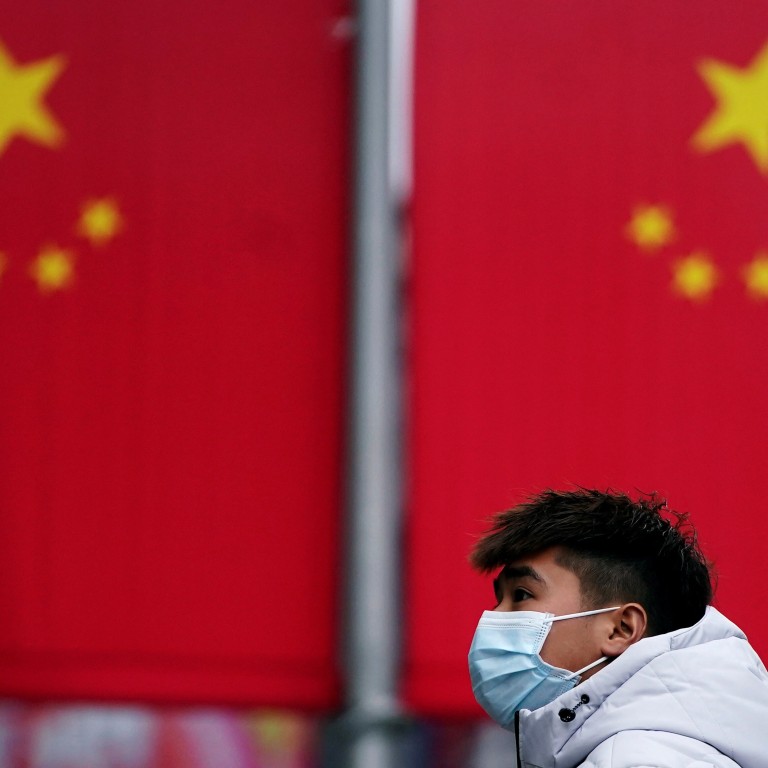
China’s copyright law amendment criticised as an ‘abusive use of power’ that weakens IP protection
- Proposal to update Article 4 of China’s copyright law includes a new clause of ‘abusive use of copyright’ that would hand regulators significant power
- It could spark disputes with trading partners, including the US and European Union, that have long complained China’s poor record in protecting intellectual property
A controversial proposed amendment to China’s copyright law that claims to offer copyright owners increased protection has been criticised as an “abusive use of power” and “rule-of-law with Chinese characteristics”.
The new clause of “abusive use of copyright” would hand regulators significant power to review how a business or individual enforces their own copyright and could potentially weaken copyright holders’ positions, legal experts have said.
The provision within Article 4 of China’s copyright law, which covers literary, artistic, as well as scientific works such as computer programs, is intended to prevent copyright owners from hindering “normal distribution of works” and “harming the public interest”.
According to legal experts, a copyright owner could be subject to a complaint if it did not share access to its property, as they could be viewed to be preventing normal distribution.
As copyright is a private property right, any disputes should be settled through judicial channels rather than administrative channels
The allowance also does not currently exist in any other international conventions or treaties, and could cause significant legal consequences, according to legal experts who have reviewed the published draft.
Article 50 of the proposed amendment stipulates that the penalties for such offence include “confiscation of illegal gains” and a fine of up to four times the value of the gains if the abusive use of the copyright “disturbs the order of the dissemination”.
The draft also extends the policing of copyright down to county-level regulators, meaning local authorities could make administrative judgments outside the normal practice of perusing disputes through judicial channels, according to Li Yang, a law professor at the Guangzhou based Sun Yat-sen University.
“As copyright is a private property right, any disputes should be settled through judicial channels rather than administrative channels,” said Li Yang.
The amendment has huge risks as it will possibly lead the US and other countries to appeal again to the World Trade Organisation (WTO
According to Li Yang, the pressing problem in China is actually the widespread infringement of the copyright, and any new legislation should focus more on copyright protection rather than attempting to restrict the exertion of copyright.
Yang Yong, a researcher at the Shanghai-based East China University of Political Science and Law, wrote in a note last month that “the amendment has huge risks as it will possibly lead the US and other countries to appeal again to the World Trade Organisation (WTO).”
Li Weimin, a law professor at Wuhan University and a partner at the Beijing Weibo Law Firm, said the amendment could provide local authorities a significant amount of room for arbitrary implementation and makes it harder to protect copyright in China.
Article 4 is too vague and too broad, because it doesn’t specify what is ‘abusive use’
“Article 4 is too vague and too broad, because it doesn’t specify what is ‘abusive use’, so it could turn out to be what Chinese legal professionals call a pocket crime – a criminal charge that can be applied to a broad range of offences. It could affect foreign investment related to copyright too,” Li Weimin said.
The National People’s Congress Standing Committee, China’s lawmaking body, conducted the first review of the amendments in April, although it remains unclear if it will be endorsed. The current public review period for the draft ended on June 23, although a second review by lawmakers has not yet been scheduled.
Aaron Wininger, director of the China Intellectual Property Practise at California-based law firm Schwegman Lundberg & Woessner, gave an example of a karaoke chain who wanted to buy a limited number of popular songs from a music company. It could, in theory, use Article 4 if the music company bundled the popular songs together with unpopular songs, therefore forcing the karaoke chain to pay more.
“Arguably, this would affect the normal distribution of works because it effectively increases the cost of licensing the popular music,” said Wininger.
In 2007, the US filed a complaint about China’s copyright law with the WTO concerning “deficiencies” with the regulations, including a clause that barred copyright protection for movies, music and songs that had been banned by Chinese censors. The WTO ruled in favour of the US, and in 2010, China removed the clause from its copyright law.

